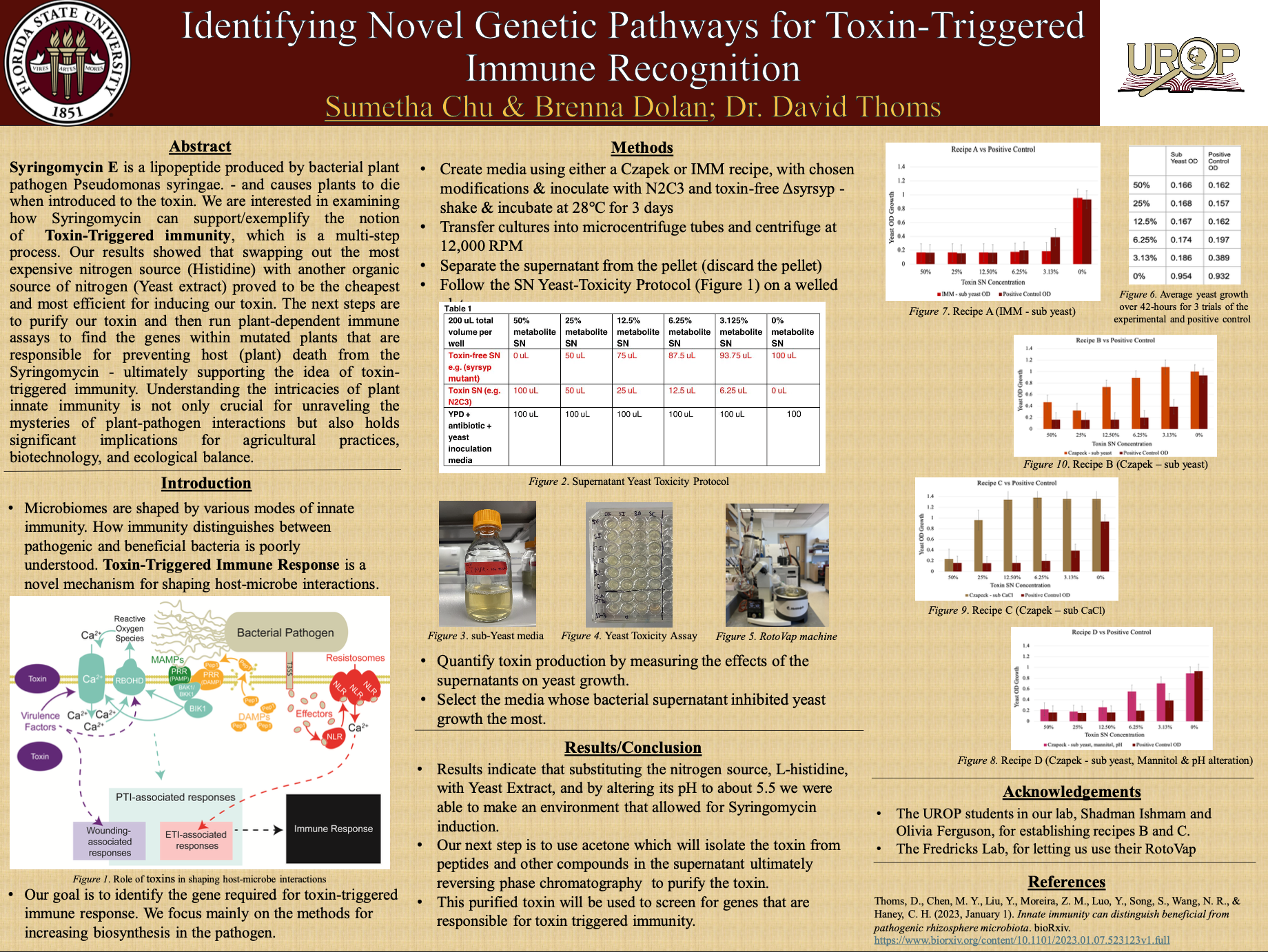Research Symposium
24th annual Undergraduate Research Symposium, April 3, 2024
Sumetha Chu Poster Session 3: 1:30 pm - 2:30 pm/63

BIO
Hello, I am from Tampa. I enjoy doing hands-on experiments in the lab. I am currently working on a microbiology lab. I am hoping to go to graduate school for CRNA or medical school after I graduate.
Identifying Novel Genetic Pathways for Toxin-Triggered Immune Recognition
Authors: Sumetha Chu, David ThomsStudent Major: Nursing
Mentor: David Thoms
Mentor's Department: FSU Department of Biology Mentor's College: Florida State University Co-Presenters:
Abstract
Syringomycin E is a lipopeptide (toxin) secreted by plant pathogen Pseudomonas Syringae. This toxin inserts into plant cell membranes and forms small pores causing leakage of water and nutrients from plant cytoplasm - facilitating bacterial entry, ultimately killing the host plant. We are interested in examining how Syringomycin can support/exemplify the notion of toxin-triggered immunity, which is a multi-step process. Our results showed that swapping out the most expensive nitrogen source (Histidine) with another organic source of nitrogen (Yeast extract) proved to be the cheapest and most efficient for inducing our toxin. The next steps are to purify our toxin and then run plant-dependent immune assays to find the genes within mutated plants that are responsible for preventing host (plant) death from the Syringomycin - ultimately supporting the idea of toxin-triggered immunity. Understanding the intricacies of plant innate immunity is not only crucial for unraveling the mysteries of plant-pathogen interactions but also holds significant implications for agricultural practices, biotechnology, and ecological balance.
Keywords: microbiology, innate immunity, toxin, syringomycin


